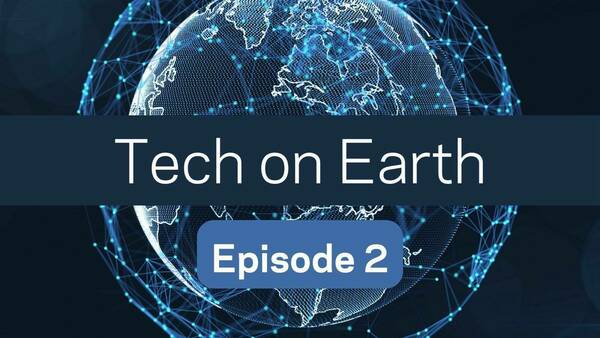
Sponsored by the Pontifical Academy for Life (PAV), the Rome Call for AI Ethics was signed in Rome on February 28, 2020, by the PAV, IBM, Microsoft, the UN’s Food and Agriculture Organization, and the Italian government’s Ministry of Innovation.
To hear Father Paolo Benanti, a member of the PAV, describe the Rome Call is to gain an appreciation for both the simplicity of its purpose and the loftiness of its goals.
“If you go in Silicon Valley, you can hear from a lot of programmers that being in Silicon Valley today, it's like to be in Florence during the Renaissance, there is a lot of idea of something new that they are producing,” Fr. Benanti said on the second episode of the Notre Dame-IBM Tech Ethics Lab podcast Tech on Earth.
“Try to write ‘Renaissance’ with capital AI in the middle. So if the Renaissance was the time when we discovered again the centrality of the human beings, RenAIssance in AI means to start to develop an AI system that is human-centered, that has the human beings as the core and as the ends. … [The] Rome Call [has] tried to be the blueprint of this new RenAIssance.”
A Franciscan of the Third Order Regular, Fr. Benanti is Extraordinary Professor of Moral Theology, Bioethics, Neuroethics, and Ethics of Technologies at the Pontifical Gregorian University in Rome. He spoke with Tech on Earth host Elizabeth Renieris, the Lab’s founding director, about the Rome Call’s promotion of what he and others (including Pope Francis) have termed “algorethics.”
“If a machine can give you or deny to you to borrow money from a bank, if a machine can give or deny you some kind of constitutional right—like in the trial in the tribunal—well, this machine has not only to execute a code; it's also to understand human-produced ethical value,” Fr. Benanti said. “But these ethical values, this moral law, now has to be computable in an algorithmical way [so] as to be … understandable by the machine. Algorethics is this new chapter of this old journey of the human beings on the Earth that is traced in ethics.”
Fr. Benanti started his academic career in mechanical engineering before entering the Franciscan order and pursuing theology and philosophy. He holds a doctorate in moral theology from the Pontifical Gregorian University and won the university’s Vedovato Award for his dissertation “The Cyborg: Corpo e corporeità nell’epoca del postumano.”
His research focuses on the management of innovation, particularly as it relates to the internet and the impact of the Digital Age, biotechnologies for human improvement and biosecurity, and neuroscience and neurotechnology. Among his many publications is the ebook Homo Faber: The Techno-Human Condition (EDB 2018).
For Fr. Benanti, the study of technology and tech ethics is a natural extension of his faith.
“As a Christian Catholic, believing that we are creature[s] made by God, that mean[s] that everything that we are is in the desire of God,” he said. “So our reason, our ability to understand, our ability to project and do things are not just an accident; it's something that [is] given us to take care and to allow the land, the promised land, to [become] fruitful. So it's something that we can use to produce much more wellness for everyone.”
Tech on Earth is a podcast aimed at bringing a practical lens to tech ethics around the globe. You can listen to the episode with Fr. Benanti by using the player below, visiting the podcast’s homepage at techethicslab.nd.edu/news-and-events/tech-on-earth (includes a written transcript), or finding Tech on Earth in your favorite podcast app.
Subscribe to the Podcast
